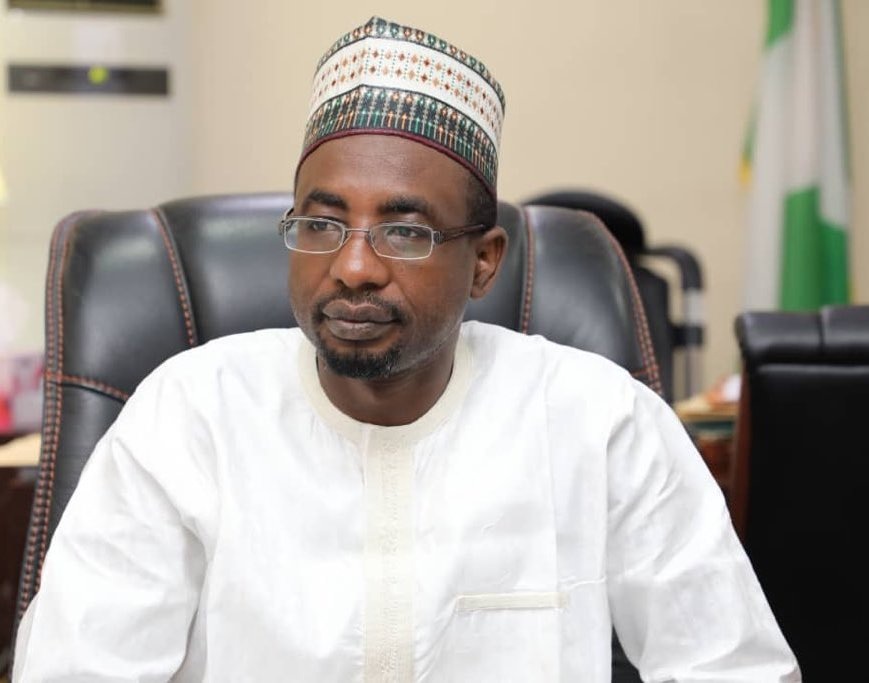The National Information Technology Development Agency (NITDA), through its IT project clearance mandate, had assessed and cleared 62 Information Technology related projects worth over N1trillion between January and May this year.
Director-General of NITDA, Mallam Kashifu Inuwa Abdullahi, made this known during his speech delivered by the Director IT Infrastructure Solutions, Dr Usman Gambo Abdullahi, at a virtual meeting organised by a subsidiary of the Agency, Office for Nigerian Content Development (ONC).
This is an indication of the drive by this administration to digitalise government services, as most of these projects are service-based.
The event theme, “Harnessing indigenous solutions for public sector innovation and digital development”, is very apt at this critical period of our digital experience.
While analysing the impact of NITDA’s efforts, Inuwa said the assessment shows that over N64.8billion was for software and software-enabled projects.
This, he said, has shown that more can be achieved with a deeper collaboration between the public and private sector going forward using technology as a driver for public services.
“Therefore, for successful development and delivery of government digital services, it is significantly important that innovative Nigerian companies are engaged very early in the project from the conceptualization and design stages,” he said.
He added that the effect of the pandemic on the economy, governance and public service delivery has spurred a greater urgency for the development of government digital services and digital economy for Nigeria.
The DG stated that NITDA will soon issue frameworks for the development of government digital services, and public-private sector partnership in its products as there is an urgent need for government to accelerate the delivery of government digital services for the benefit of Nigerians.
Kashifu, while elaborating on the benefits of collaborations and partnerships between the public and private sector said, it will deepen the opportunity for learning to create tailor-made solutions for societal problems.
Reiterating what the DG has said, the National Coordinator of ONC, Barrister Kassim Sodangi, while giving his opening remarks said, “our key objective is that, for solutions that are driven or adopted by the Federal Government, we want to encourage that beyond issuing out procurement notices and adverts, the MDAs will be able to sit down with indigenous content providers to discuss and come up with a plan or strategy to drive the development of the solution.”
Speaking on the digital economy, Sodangi stated that indigenous content development and adaptation, which is the pillar the ONC operates under, is a central pillar of the digital economy in Nigeria, to ensure that local capacity is built, adopted and used as a central plan for the development of digital economy in the country.
He mentioned that in the course of the meeting, they will be going through the public procurement act, explore and examine the presidential Executive Order 003 and 005 for planning and execution of projects and promotion of Nigerian content in contracts, science, engineering and technology.
These documents will form the fulcrum for discussing a laboratory of what can happen and the opportunities in the bylaw and policy that will drive the development of co-creation and co-planning of projects.
“Our pitch to you MDAs here present is that you will explore the frameworks policy and laws available so that we can ideate together, we can design programs together so that we can deliver this programs together as one entity,” said Sodangi.
He argued that the whole essence of the meeting was to co-ideate and co-develop solutions that are indigenous to Nigeria that will solve specific and precise problems in our society.
Sodangi spoke extensively on the digital economy, as he described the National digital economy policy and strategy document as a vanguard document for harnessing digital economy in Nigeria.
“This strategy contains eight pillars, they are developmental regulation, digital literacy and skills, solid infrastructure service, infrastructure promotion of digital services, digital Society and emerging technologies and indigenous content development,” he emphasized.

